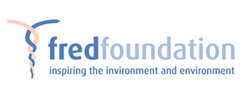Air pollution costs European economies US$ 1.6 trillion a year in diseases and deaths, new WHO study says
WHO press release
28.04.2015 | WHO Regional Office for Europe
A staggering US$ 1.6 trillion is the economic cost of the approximate 600 000 premature deaths and of the diseases caused by air pollution in the WHO European Region in 2010, according to the first-ever study of these costs conducted for the Region. The amount is nearly equivalent to one tenth of the gross domestic product (GDP) of the entire European Union in 2013.
The new study was published today by the WHO Regional Office for Europe and the Organisation for Economic Co-operation and Development (OECD) as a 3-day high-level meeting on environment and health in Europe opens. Over 200 representatives from European countries and international and nongovernmental organizations gather in Haifa, Israel, on 28–30 April 2015 to look at achievements, gaps and challenges and set future priorities.
“Curbing the health effects of air pollution pays dividends. The evidence we have provides decision-makers across the whole of government with a compelling reason to act. If different sectors come together on this, we not only save more lives but also achieve results that are worth astounding amounts of money,” says Dr Zsuzsanna Jakab, WHO Regional Director for Europe. “Cross-sectoral work is the backbone of the environment and health process, which was initiated 26 years ago, and it is even more relevant today in the discussions taking place at this meeting in Haifa.”
Download the full press release here.
A ground-breaking report: economic cost of the health impact of air pollution in Europe
Economic cost of the health impact of air pollution in Europe is the first assessment of the economic burden of deaths and diseases resulting from outdoor and indoor air pollution in the 53 countries of the Region.
The economic cost of deaths alone accounts for over US$ 1.4 trillion. Adding another 10% to this, as the cost of diseases from air pollution, results in a total of almost US$ 1.6 trillion. In no less than 10 of the 53 countries of the Region, this cost is at or above 20% of national GDP (see Annex for data by country). The study uses the methodology applied in a 2014 report by OECD and makes the calculations based on the most recent economic estimates of the health impacts of air pollution.
The economic value of deaths and diseases due to air pollution – US$ 1 600 000 000 000 –corresponds to the amount societies are willing to pay to avoid these deaths and diseases with necessary interventions. In these calculations, a value is attached to each death and disease, independent of the age of the person and which varies according to the national economic context.
Air pollution: the single largest environmental health risk
Over 90% of citizens in the Region are exposed to annual levels of outdoor fine particulate matter that are above WHO’s air quality guidelines. This accounted for 482 000 premature deaths in 2012 from heart and respiratory diseases, blood vessel conditions and strokes, and lung cancer. In the same year, indoor air pollution resulted in an additional 117 200 premature deaths, five times more in low- and middle-income countries than in high-income countries.
“Reducing air pollution has become a top political priority. Air quality will be a key theme at the next Environment for Europe Ministerial Conference in Georgia in 2016”, says Mr Christian Friis Bach, Executive Secretary of the United Nations Economic Commission for Europe (UNECE). “Fifty-one countries are today finding joint solutions in the framework of the UNECE Convention on Long-range Transboundary Air Pollution. This work must be strengthened to reduce air pollution even further and extended to more countries and to other regions.”
“About 2500 people are estimated to die in Israel annually as a result of exposure to air pollutants. The main source of air pollution is transportation, mainly in major city centres,” says Mr Ofir Akunis, Deputy Minister of Environmental Protection and Member of Knesset (Parliament) for Israel.
“Since 2011, the Ministry of Environmental Protection’s Clean Air Law regulates pollutants from major sources such as transport, industry and energy in accordance with the most stringent standards. The Ministry aims to use all available resources to reduce air pollution, as this means saving the lives of thousands of people, as well as billions to the Israeli economy”.
Improving environment and health in Europe: how far have we gotten?
The cost of the health impacts of air pollution is only one of many studies that will provide evidence on the environmental impacts on health to be released at the Haifa meeting.
Another new report, Improving environment and health in Europe: how far have we gotten? jointly published by WHO and UNECE, informs that one in four Europeans still falls sick or dies prematurely from environmental pollution. Data from several surveys in priority thematic areas such as water and sanitation, air quality, the day-to-day surroundings of children’s lives, chemicals and asbestos, climate change and health inequalities all show that while progress has been remarkable, it has been uneven (see Fact Sheet on the report).
Notes to editors
- The value of statistical life (VSL) is a standard economic method used to assess the cost of mortality at the level of society as a whole, as derived from aggregating individuals’ willingness to pay to secure a marginal reduction in the risk of premature death. The cost of mortality from air pollution is the VSL value multiplied by the number of premature deaths. And the economic benefit of a mitigating action becomes the same VSL value multiplied by the number of prevented deaths.
Information sources
- Economic cost of the health impact of air pollution in Europe http://www.euro.who.int/en/economic-air
- Improving environment and health in Europe: how far have we gotten? http://www.euro.who.int/en/mtr-report
- The cost of air pollution: health impacts of road transport, OECD 2014 http://www.oecd.org/environment/greening-transport/transport-and-environment.htm
- Environmental health economics http://www.euro.who.int/en/health-topics/environment-and-health/pages/environmental-health-economics
- Air quality http://www.euro.who.int/en/health-topics/environment-and-health/air-quality
- Mid-term Review site www.euro.who.int/ehp-mtr
For further information, contact the WHO Regional Office for Europe:
Cristiana Salvi (in Haifa)
Communications Officer
Mobile: +45 29 63 42 18
Email: csa@euro.who.int
Stephanie Brickman (in Copenhagen)
Communications Consultant
Tel: +45 45 33 68 44
Email: sbr@euro.who.int
Related News
Policy Dialogue On Sustainable Development, Health and Social justice in Tirana, Albania
Linking the Ostrava Declaration of the European Environment and Health Process to SDGs Agenda 2030
10.03.2018
UN Summit on Eradicating Poverty and Promoting Prosperity in a Changing World
8 days of advocacy and activism for a gender just future within the SDG process. WECF recently attended the UN summit on the Sustainable Development Goals (High Level Political Forum, HLPF) in New York and reports back on their experiences.
10.08.2017
Youth at the heart of ECO Forum's participation in Ostrava
Reporting back on WHO’s regional conference on environment and health, where WECF (and its ECO Forum delegation of 23 youths and seniors) was to advocate for a healthy future
23.06.2017
"Let's Ensure a Healthy Future" - WECF side event at WHO 6th Ministerial Conference
Protecting children from exposure to harmful chemicals to avoid irreversible damage.
14.06.2017
Midterm review of environment and health progress in the European Region
From 28 to 30 April WECF was part of the Ecoforum delegation, representing environmental organisations from the European Region, participating at the mid-term review meeting of the WHO European Environment and Health Process in Haifa, Israel
15.05.2015







































